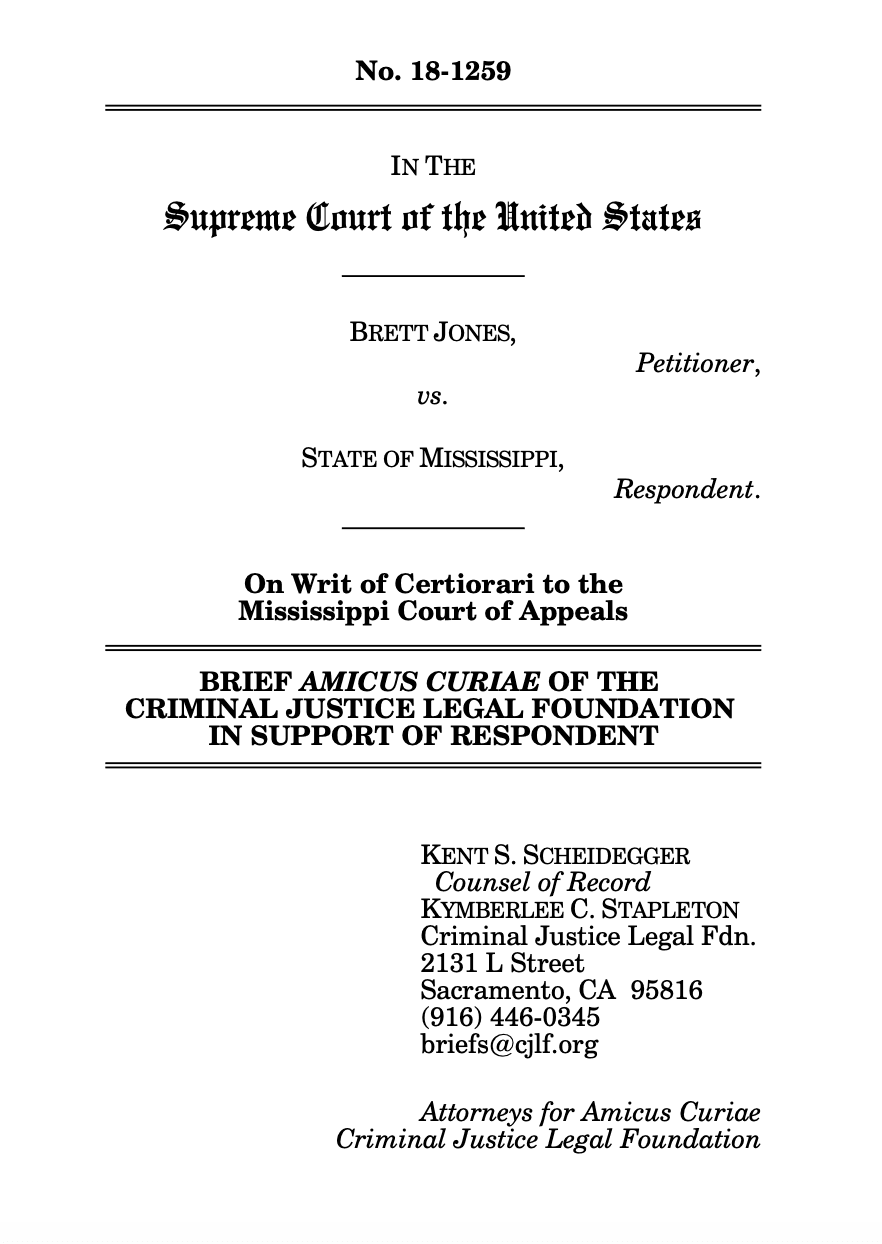
Summary of Argument
The essential facts of this case are summarized in the oral ruling of the trial judge on resentencing, in the Joint Appendix (J. A.), and additional information is available in the opinions of the Mississippi courts. At the age of 15, petitioner Brett Jones left the home of his mother and stepfather in Florida and was taken in by his grandfather, Bert Jones, in Mississippi “to provide him with a home away from the circumstances in Florida.” J. A. 151-152. The circumstances included behavior by the stepfather that was abusive but short of “ ‘beatings, per se’ or any injuries that required medical attention.” Jones v. State, 285 So. 3d 626, ¶ 7, 630 (Miss. Ct. App. 2017) (Jones III) (appeal from post Miller hearing). Two months later, Jones stabbed his grandfather to death. Ibid., ¶ 8.
“A fair consideration of the evidence indicates that the killing of Mr. Bert Jones was particularly brutal.” J. A. 150. Jones stabbed his grandfather eight times, using a second knife after the first broke. He attempted to conceal the act. Ibid. Postmortem examination found defensive wounds on the grandfather’s hands. Jones v. State, 938 So. 2d 312, ¶ 10, 315 (Miss. Ct. App. 2006) (Jones I, initial appeal).
At trial, Jones claimed self-defense, and the jury was instructed on that defense and the lesser-included offense of manslaughter. The jury’s verdict of guilty of deliberate-design murder constitutes a finding “beyond a reasonable doubt that the defendant did not act in self-defense,” J. A. 150, rejecting Jones’s version of the circumstances of the killing. There is “no evidence of mistreatment or threat by Bert Jones, except the self defense claim asserted and rejected by the jury.” J. A. 151.
51.2 Jones was convicted of murder and sentenced to life imprisonment, and the judgment was affirmed on direct appeal. See 938 So. 2d, ¶ 11, at 315, ¶ 22, 317. The trial court subsequently denied post-conviction relief, and the Court of Appeals affirmed. Jones v. State, 122 So. 3d 725, ¶ 9, 729, ¶ 68, 742 (Miss. Ct. App. 2011), affirmed in part and reversed in part by Jones v. State, 122 So. 3d 698 (Miss. 2013) (Jones II).
This Court decided Miller v. Alabama, 567 U. S. 460 (2012) the following year. The Mississippi Supreme Court then granted certiorari limited to the Miller issue. Jones II, 122 So. 3d, ¶ 3, at 699. The Mississippi Supreme Court held that Miller was retroactive on collateral review. See id., ¶¶ 11-12, at 702. It vacated the sentence and remanded to the trial court for resentencing. See id., ¶ 29, at 703.
On resentencing, the trial judge noted the defendant’s age and his family situation. J. A. 151. The judge evidently did not find that situation to be as violent as petitioner would have this Court believe. Compare ibid., with Brief for Petitioner 7.
The judge stated expressly that he had “considered each of the Miller factors” and found that Jones was not entitled to have his sentence reduced “to make him eligible for parole consideration.” J. A. 152. The Court of Appeals affirmed. See Jones III, 285 So. 3d, ¶ 1, at 627. The Mississippi Supreme Court, a nine-justice court with a “rule of four,” granted certiorari, but then the court dismissed the writ after oral argument, four justices dissenting. See App. to Pet. for Cert. 1a-2a. This Court granted certiorari on March 9, 2020, after a similar case became moot. See Mathena v. Malvo, 140 S. Ct. 919, 206 L. Ed. 2d 250 (Feb. 26, 2020).